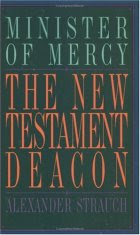 So maybe I should quit with the provocative titles, but I'm feeling pert this morning.
So maybe I should quit with the provocative titles, but I'm feeling pert this morning.Well, I'm finally plumbing the depths of my Reformed heritage, about 10 years behind schedule, reading Bavinck's newly translated work pictured here in preparation for a sermon on God's creation and covenant with Adam before the Fall. Bavinck wrote 100 years ago as professor at the Free University in Amsterdam. He followed Abraham Kuyper both in that position and theologically, as a rigorously orthodox Calvinist scholar.
If you don't know what FV means, go here for a short summary, which also relates to Adam, grace, baptism, communion, our children, and more.
FV-related Bavinck quotes follow:
"A creature cannot bring along or possess any rights before God....
There is no such thing as merit in the existence of a creature before God....
This is true after the fall but no less before the fall. Then too, human beings were creatures, without entitlements, without rights, without merit. When we have done everything we have been instructed to do, we are still unworthy servants (Luke 17:10)....
Human beings can nevertheless... assert certain rights before God... because God in his condescending goodness gives rights to his creature. Every creaturely right is a given benefit, a gift of grace, undeserved and onobligatory. All reward from the side of God originates in grace; no merit, either of condignity or of congruity, is possible. True religion, accordingly, cannot be anything other than a covenant: it has its origin in the condescending goodness and grace of God. It has that character before as well as after the fall."
Pg 570





